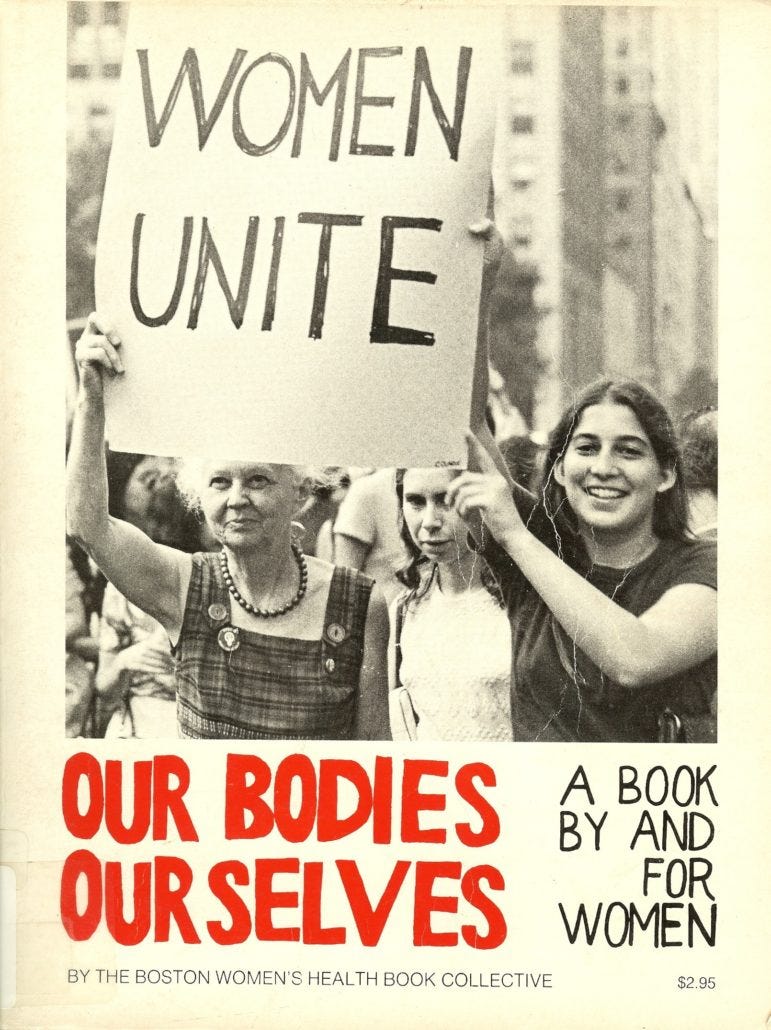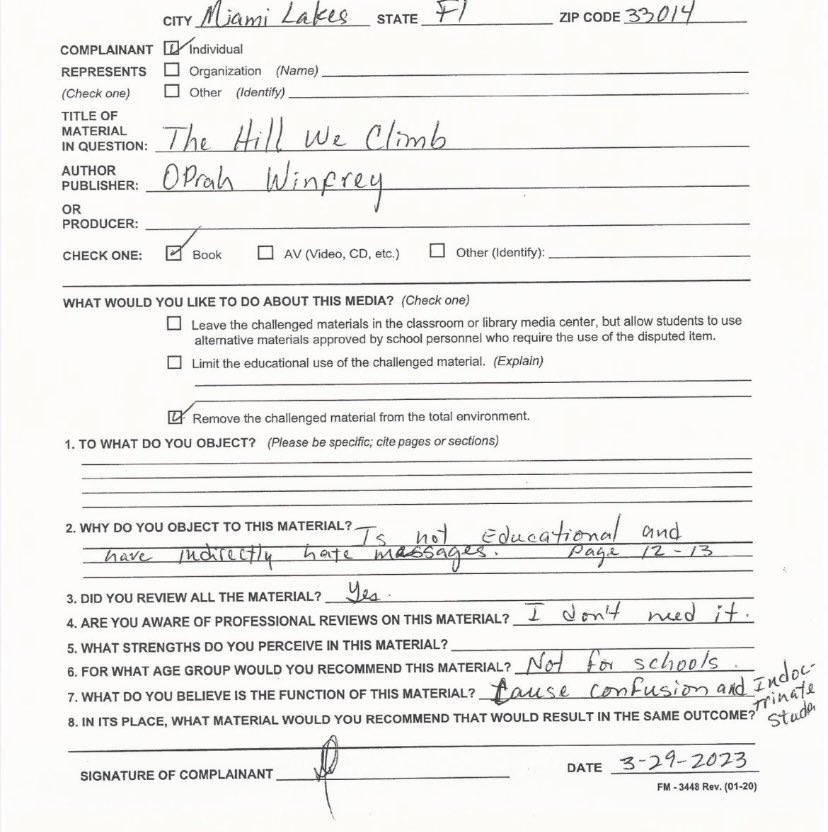Why my parents said yes.
About Judy Blume, a scary trip to the library, book bans, and the secrets of our basement.
I grew up in an old house with crooked, jagged steps leading down from the kitchen to an unfinished basement. There were more than a few ghosts there.
It was a dank, chilly, cobwebbed place sprawling with cardboard boxes, file cases, furniture in need of fixing, laundry machines missing their knobs. Against one wall was a rarely-used tool table with beautiful outlines on a peg board where a saw or set of hammers were supposed to be hanging but never seemed to find their way back — with the exception of the wrench, which stayed on top of the clothes dryer so we had a way to turn the knob to the 60 minute mark.
There was never enough light.
It was the kind of basement that, when you left, you absolutely had to run back up taking two stairs at a time, and you didn’t dare look back until you were all the way in the clear with the kitchen door closed safely behind you.
There were also treasures to be found in that basement. Mysterious things. Secret adult things that demanded occasional exploration with flashlights and subsequent mental accounting.
I mean if we’ve learned anything from Goonies, it’s that you have to get through some gnarly underground places to get to the treasures and that this was, of course, best done with friends.
When my brother was about six, a classmate joined him in a journey down to the basement. They came across my dad’s countless stacks of magazines, including old Playboys—chaste by today’s standards—with their fading covers, curling corners and vague smell of mildew.
The friend must have been flipping through them for some time before he realized my brother was off checking out some old toys or sporting equipment in another corner of the basement.
“Don’t you want to look?” the friend asked eagerly.
“Nah…” my brother shrugged, as the family lore goes. “I’ve seen them.”
Our family rule was that I could read absolutely anything we wanted that was in this house. Anything.
Erica Jong. Alex Comfort. Alex Haley. John Irving. Toni Morrison. Joseph Heller. Chaim Potok. Betty Friedan. Kurt Vonnegut.
I can’t tell you how many times I read this very copy of Our Bodies, Ourselves.
I remember thinking the girl on the cover photo on the right was pretty old. She probably had her period and everything.

If it was not in our house, we could borrow it from the town library.
And that’s just where I went the September of sixth grade, when the hottest book of all-time couldn’t be found on the shelves of the school library where I had expected — in the Bs, alongside Deenie and Blubber, Then Again Maybe I Won’t, Are You There God, It’s Me Margaret? of course, and my very favorite, Starring Sally J Friedman as Herself.
My mother drove me to the local library that afternoon.

I still remember taking one shaky step toward the librarian, as my mom whispered, “ask her.” I cleared my throat and stated with as much confidence as I could, “I’m looking for Forever…by Judy Blume.”
“Forever,” she said to my mom with one eyebrow raised to the heavens, “that is in the adult section. Upstairs.”
“That’s fine,” my mom said.
“That means you would have to sign it out for her.”
“My daughter is allowed to read anything at all available in this library,” Mom said. “Show us where she can find it.”
In defense of the librarian: when I was 12 I looked about 9.
In defense of my mom: she didn’t give a shit.
It took me until I became a parent to understand why my parents said yes to all the books that my friends’ parents said no to.
It’s not because they were wacky hippies (my mom did make us eat wheat germ but my dad owned a lot of fancy ties). It’s not because they were liberal commies without boundaries. It’s not because they were bad parents.
I realize they let me read all books because they were good parents. Who parented me.
That means we were encouraged to talk about the things we read and learned. We discussed the issues that concerned us. We asked about the confusing parts. We brought up the tough questions; even the embarrassing ones that made me sit on my hands and squirm, hardly exhaling until I realized I could feel my pulse in my face.
Why would a woman want to show her boobs in a magazine?
How come he drew the little boy without covering his private parts?
Does LSD really make you think bugs are eating your body?
But what are wet dreams, really?
Is there a chance we would ever have to hide in an attic for two years or is that all over?
What does an orgasm feel like?
Is Moustache cologne a real thing?
Books weren’t scary to my parents because the questions the inspired weren’t scary to my parents.
Or maybe they were, but I never would have known it.
When parents say no to books, no to access, no to history, no to knowledge, no to truth, I think it’s because they are scared to death.
We desperately need to fight that fear.

Parents are scared that words have power (they do). Scared that knowledge begets curiosity (it does). Scared kids will “grow up too fast” (books are the last thing causing that today). Scared of change (it’s coming anyway).
And particularly in states like Florida, Texas, Missouri, Utah, South Carolina, parents are scared of change that, no matter how moral and necessary, may benefit someone who is not them.
And so these parents cling to “no.”
Ha, as if that’s ever worked.

Let me let you in a secret…
Come closer…
closer…
ready?
Our kids are going to learn stuff!
They’re going to learn about sex, vintage Playboys aside. They’re going to learn about drugs and alcohol. About young love and the trials of adolescence. Our kids are going to learn about inequity and discrimination, about pain, about bullying, about queerness and gender fluidity, about feminism, about xenophobia, about institutional bigotry and racism, about the flaws of American “heroes,” about history with all its complexities.
They will do that with or without your permission. With or without books in their curriculum by Amanda Gorman, Ibram X Kendl, Maia Kobabe, Art Spiegelman, Margaret Atwood. Judy Blume. With or without authoritarian governors and their ignorant minions infiltrating school boards across the country to claim that the point of a poem about hope for America is to “cause confusion and indoctrinate.”
Our kids are going to learn stuff.
And, if we’re lucky, they’re going to teach us stuff too.
If we want to be the kinds of parents who say “you know, you can come talk to me about anything” — we need to be sure our kids believe it.
So when we say yes to books, we don’t just say yes to our children’s own important journey toward knowledge and understanding; we are saying yes to hard conversations. To opportunities to listen, to answer, to impart our values, to squirm sometimes and sit on our hands, to look up answers we don't know together on the handheld Google machine as we call it, or to simply ask our kids, “well, what do you think?”
Our kids are going to learn stuff.
If we try to stop them, I don’t believe most parents would like the alternative much.
Which is that our kids will grow up to say yes to the ideas in the books…and no to the parents.
If you’re as concerned as I am about the rash book banning and censorship at the hands of a radical minority, this post includes a list of action items including videos you can watch, articles you can read, and organizations you can support.
Please share it with anyone you know who’s also feeling rightfully infuriated and maybe a little helpless right now.




My parents had the same philosophy raising my brother and me. They wanted us to read, to love reading. Nothing was off limits. If we could read the words, we could read the book. Friends had to hide their copies of Sweet Valley High, VC Andrews and Stephen King. My mothers didn’t bat an eye. If I had questions I knew to ask her or look it up in another book.
I wonder how many of these people who want books banned read Flowers in the Attic with a flashlight under the covers so their parent wouldn’t know. I bet a few.
Such a great post. I had to sneak read these books at friends’ but I spent most of my teen years in libraries making up for lost time.
Now where’s the fund to put The Hill We Climb on billboards all over Miami-Dade??